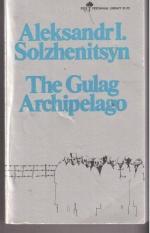|
This section contains 271 words (approx. 1 page at 400 words per page) |

|
Part 1, Chapter 6 Summary and Analysis
Governments imprison or kill people not for what have they done, but to keep them from doing something else—in the POWs' case: talking about Europe. Survivors must have collaborated to some degree, so the punishment for rotting in camp and for working in one's profession in captivity are identical: a tenner plus five-year "muzzling." Those who have never starved cannot understand the appeal of a bellyful of food at the price of joining a White battalion or working in construction.
In the spring of 1945, Solzhenitsyn studies émigrés old and young attentively. Seeing two tsarist officers, Capt. Borsch and Col. Mariyushkin, looking during medical examinations like living mummies, Solzhenitsyn is amazed to hear they are being interrogated about struggles in 1919. Solzhenitsyn becomes friends at Butyrki with an émigré his own age, Igor Tronko. Tall and emaciated, they...
(read more from the Part 1, Chapter 6 Summary)
|
This section contains 271 words (approx. 1 page at 400 words per page) |

|




